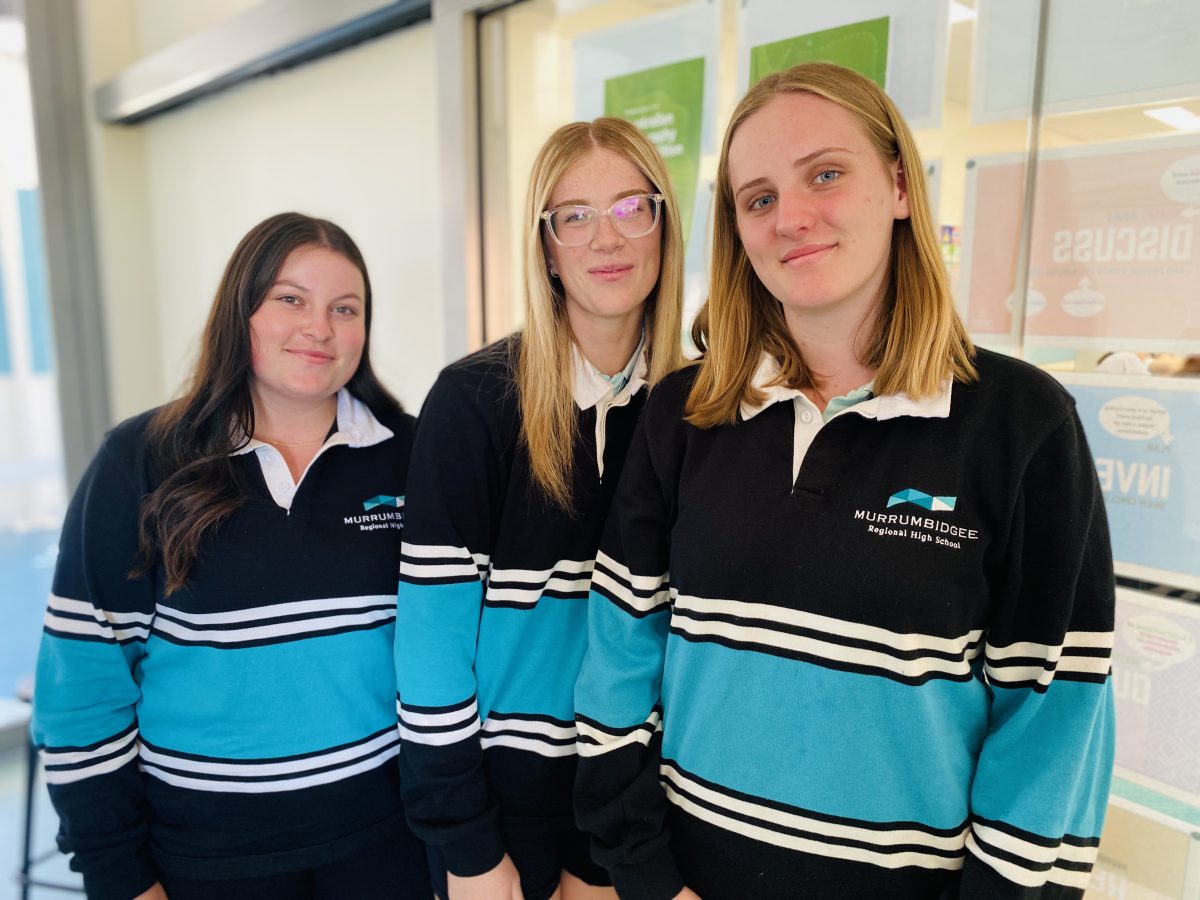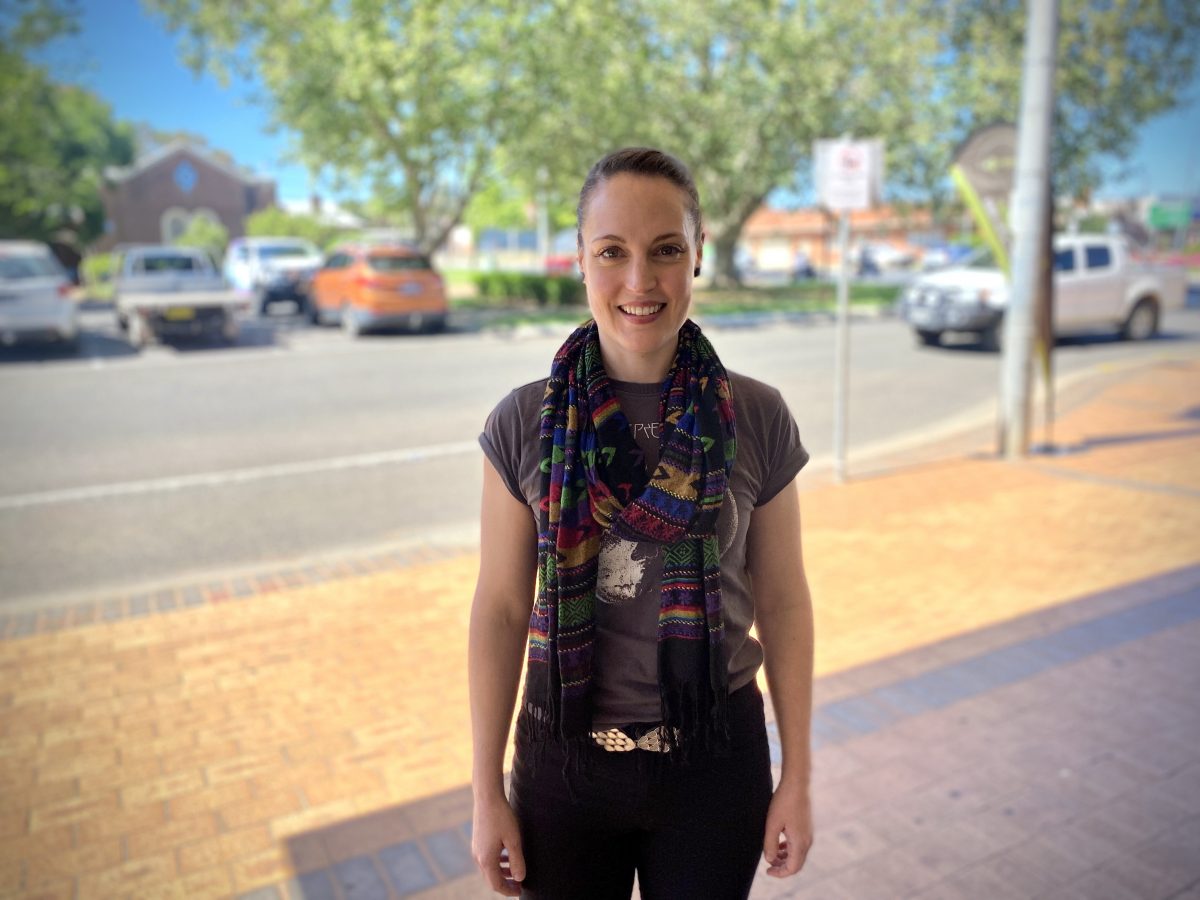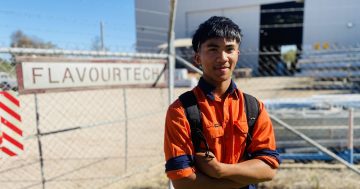
Students Kate Armani, Abbey Noffke and Ruby Brown have people excited about their career choice. Photo: Oliver Jacques.
As Griffith families face six-month waits for appointments with some health specialists, a trio of Murrumbidgee Regional High School (MRHS) year 12 students is offering a glimmer of hope for the future.
Ruby Brown, Abbey Noffke and Kate Armani are all considering careers in either occupational therapy (OT) or nursing, key fields suffering from a chronic shortage of professionals across the Riverina.
“I originally wanted to do teaching because I like working with people,” Ruby said. “I hadn’t heard of what OT was; when you’re young you don’t hear a lot about it. But then it got suggested to me and I found that’s what I really enjoy doing … at the moment, I work one day a week at Kalinda [a special needs school] with the kids there and I love it, it’s just really made me passionate about wanting to do OT.”
Griffith no longer has a full-time paediatric OT residing in the town, meaning the volunteer-run Griffith Autism Support Group (GASP) has to raise funds itself to bring one in from Sydney once a month to see children in desperate need of therapy. Locals are therefore delighted to hear about Ruby’s career choice.
“Talking with people at Kalinda, they’re really happy to hear there a those of us willing to study OT,” Ruby said. ”They see the kids who need OT and are not able to access it.”
Abbey, who is considering a career in nursing, is also motivated by the need to help her community.
“My mum is a nurse at the hospital. I can see how much they’re struggling not only with nursing but with dietetics, OT, all the specialists in the hospital,” she said. “It gives me as a daughter an insight of how much it would help [to have more students go into these fields].”

Sydney-based paediatric OT Dagney Hopp is supported by GASG to come to Griffith. Photo: Oliver Jacques.
Melina Ragusa, an innovative career adviser at MRHS, had the idea of bringing in a current OT university student [Raiya Gyles] to the school so that Ruby and other students could ask questions about what it’s like to do a degree in a health field.
“It’s important to broaden their view of what they can do,” Ms Ragusa said.
”I also invited year 10 students who have to choose work experience soon.”
Hopefully, Ms Ragusa’s initiative will see more students studying health fields, something GASP president Dene Beltrame said was desperately needed.
“We are so disadvantaged in the country … there is no point having an NDIS [National Disability Support Scheme] if you don’t have the services. Why give families the money if they can’t use it?”
Dagney Hopp, the Sydney-based paediatric OT whom GASP funds to travel to Griffith once a month to see patients, would like to see the NSW Government take a more proactive approach to address the regional specialist shortage.
“[The Government could provide] a grant, a subsidy for rent,” Ms Hopp said.
“I am only there one weekend a month but I would potentially have to pay rent all year if I have a good purpose-built clinic. It’s not sustainable and potentially a deal-breaker.”








